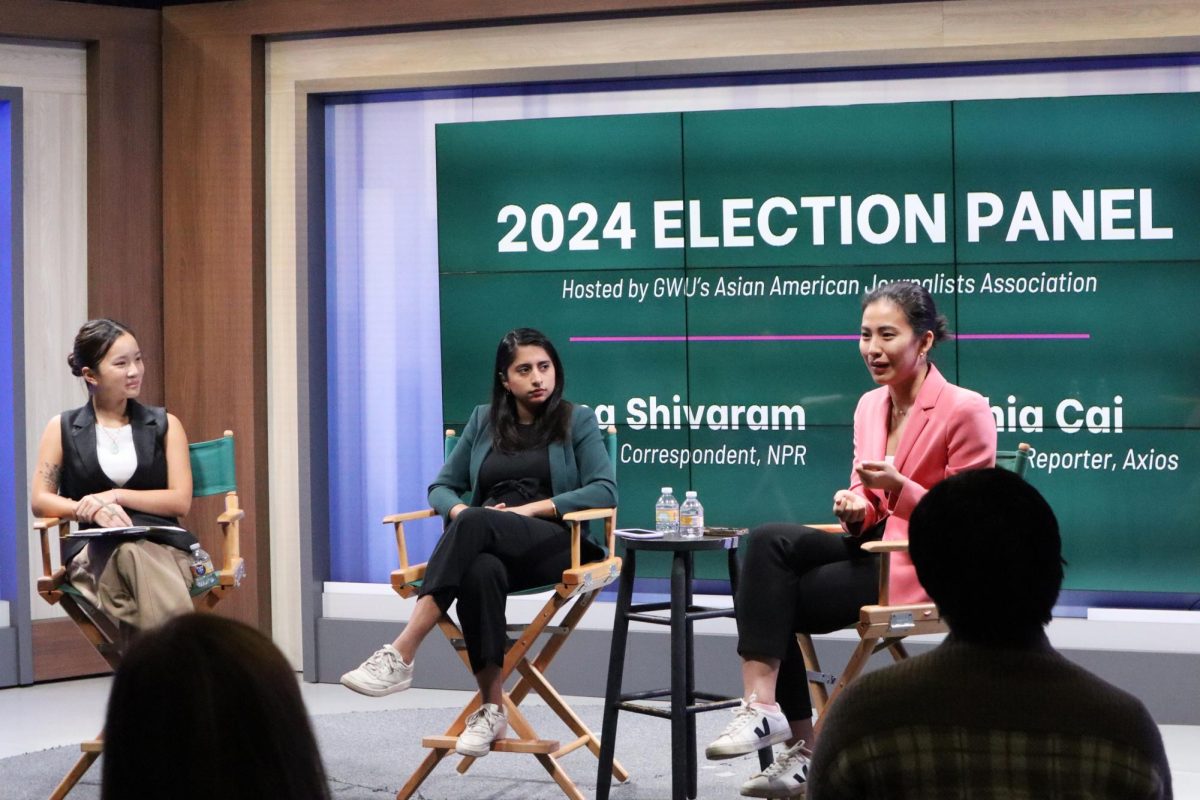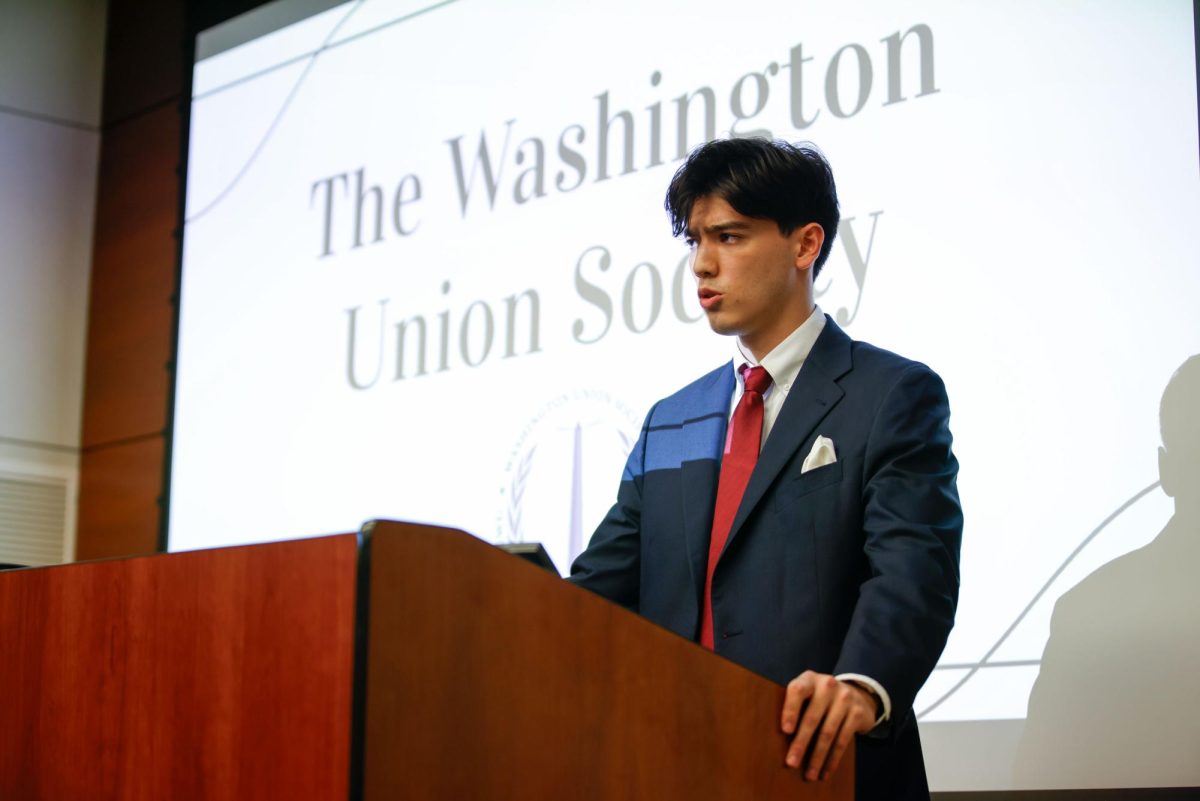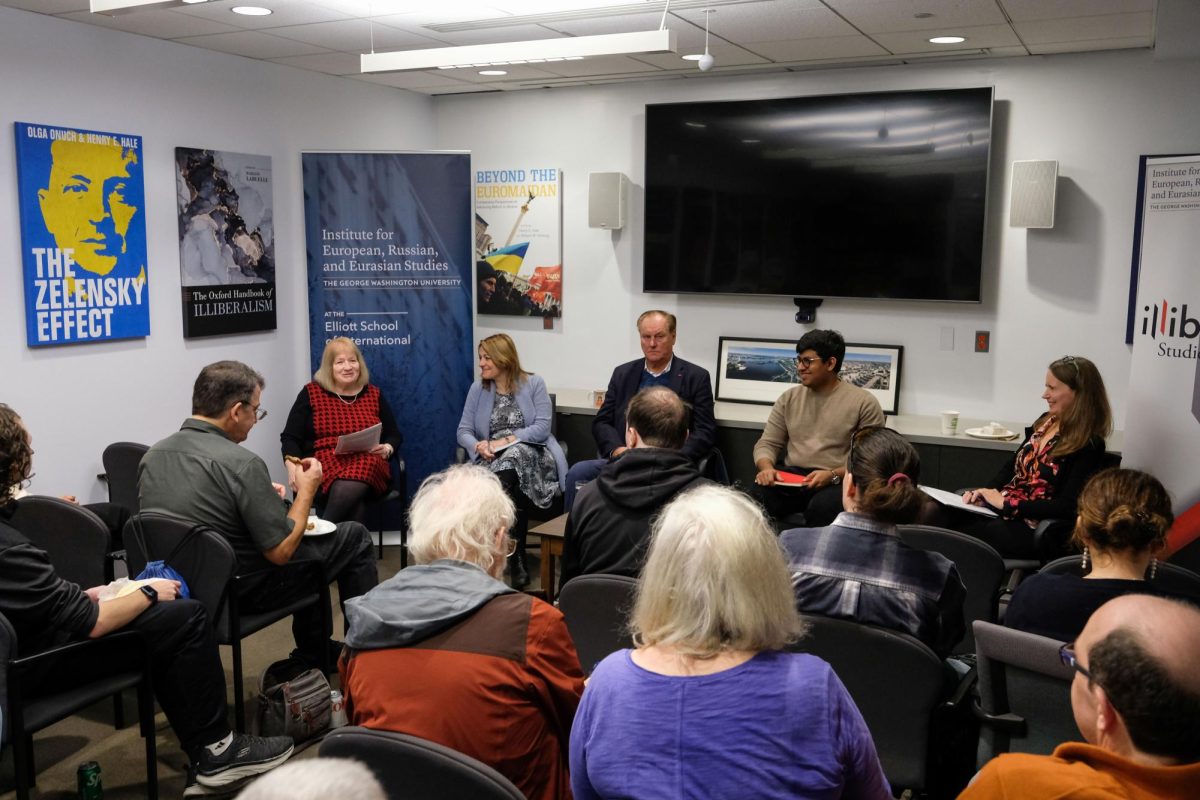Two professional journalists who are covering the 2024 presidential election gave a talk about covering politics leading up to the 2024 election at the School of Media and Public Affairs Friday.
Deepa Shivaram, a White House correspondent for NPR, and Sophia Cai, a national politics reporter at Axios, discussed how they learned to cover Former President Donald Trump and how he has changed political reporting with his unconventional political strategies. The GW Asian American Journalists Association hosted the event, which was moderated by An Ngo, AAJA vice president and The Hatchet’s graphics editor.
Cai said her first year working in D.C. was in 2020 and that she got her first reporting job at Bloomberg by responding to a social media post.
“I had responded to a tweet Bloomberg was looking for at the time when I started, a part-time White House reporter to be in the pool during COVID in the unmasked White House,” she said. “Like, what could go wrong?”
Cai said her first year in D.C. she said yes to “everything,” including covering Trump’s visits to Walter Reed National Military Center and riding on her bike to map where the National Guard was stationed after January 6th. She said she learned many things from her unconventional first experiences reporting on Trump four years ago in 2020, like how to analyze his cadence of speech, during what she described as a “really weird time” due to COVID-19 restrictions.
“I learned how Trump speaks, like how do you segregate what is news and what is like the repetitive Trump-speak, which he still does to this day,” Cai said.
Shivaram, who has been covering Harris since her decision to run for president in 2019, said one of the key lessons she learned early in her career is that building lasting relationships is crucial to professional success.
Cai said before 2016, election officials focused mainly on running smooth elections. She said today, officials’ roles have expanded to include security duties largely due to Trump’s claims that the 2020 election was rigged, which has transformed how elections are managed.
“I think there’s a lot more focus this cycle on what Trump calls election integrity. I think with the rest of us it’s really election security, it’s voting issues,” she said.
Shivaram said the press and the public are more focused on what she termed “Capital ‘D’ Democracy” — the democratic systems our government is based on — this election cycle as it was significantly threatened on Jan. 6 and rhetoric and rallies leading up to that day.
“I think there’s a couple things that we’ve had to reshape and reframe when we try to educate, as our job is to educate the electorate about what to expect for this election cycle,” she said.
Shivaram said at NPR, writers are mindful of their language to accurately reflect the current electoral landscape, opting to refer to this period as a “voting season” rather than simply stating that people vote on election day as mail-in voting and early voting has become more popular.
“People have been voting for weeks. It is an election season, it is a voting season,” she said.
Shivaram said when communicating with voters and audiences, the conversation around election results needs to be reframed to make clear that due to close elections and challenges to the results, final results likely won’t be available on election day.
“We have had to re-educate the electorate and re-educate the public on the process of voting, on what those different ways of voting look like,” she said.
She said the complexities of voting and counting votes have become an important part of news coverage during election seasons. She added that in 2020, mail-in voting was new for many people, which introduced a whole new system journalists had to educate people in.
The panel agreed that covering controversial statements in political reporting can be tricky, and there is not one sure way to mediate statements that are often the root cause of future precautions, like the threats to poll workers.
“It’s the constant balance in your head of, like, do I cover this? Because if I don’t, it either normalizes it in a way or fails to call it out,” Shivaram said. “But then also if you do cover it, you’re adding oxygen to this thing that this person said.”










